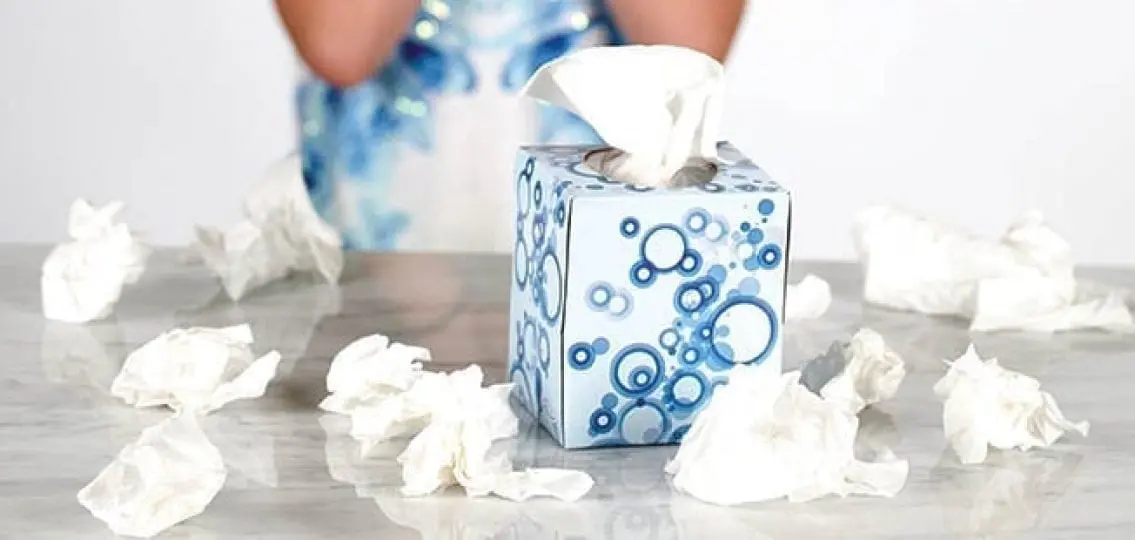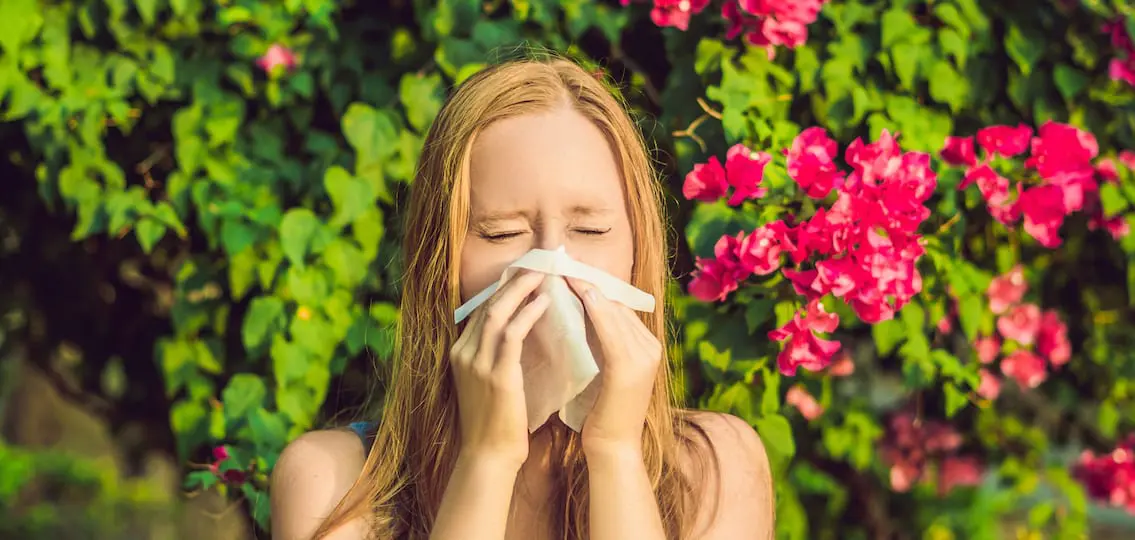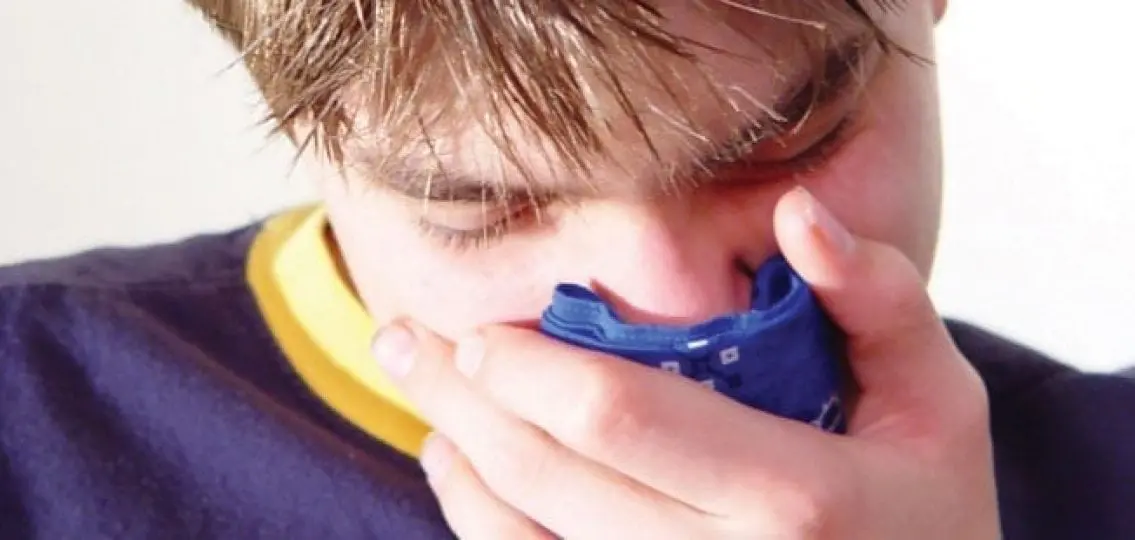A-a-a-choo! Stuffed up nose, itchy red eyes? Is it a cold, flu, or allergies? Your Teen asked Dr. Michelle Lierl, a pediatric allergist, for advice on how to treat teens with seasonal allergies.

Q: At what age do seasonal allergies usually show up in children?
Lierl: Usually by about six years old, sometimes earlier. Some kids have no complaints because this is just the way it has always been for them, and they think it’s normal. Usually they have ongoing nasal congestion, or runny nose, sneezing, and itchy, burning eyes. Symptoms which intensify during certain times of the year.
Q: Is it a cold or allergies? How do you differentiate these symptoms from a common cold?
Lierl: With a cold, you don’t feel well. You feel like you are coming down with something and may have sore throat, headaches, fatigue, or aches, or feel run down. With allergies, you don’t feel sick – you may simply have a runny nose you are constantly blowing. I find that the symptom that really distinguishes a cold from seasonal allergies is the itchy, red, irritated eyes, which is not a symptom that you generally associate with a cold.
Q: What seasons are worst for allergies?
Lierl: We notice two times in the year when the pollens or molds trigger seasonal allergies. In spring and early summer, it’s pollen from trees and mold. With fall allergies, it’s ragweed and then high mold counts from wet, decaying leaves on the ground. Then there are perennial allergens which are present all year round, such as dust mites and pet dander. Some of these are climate-dependent. In those parts of the country where there is a warm, damp spring and a long growing season (also river valleys with air inversions like we have here in Cincinnati), it can lead to very elevated pollen counts which will exacerbate allergies.
Q: Is it true people with seasonal allergies can have allergic reactions to some foods?
Lierl: Yes, it’s a mild and fairly common form of food allergy called Oral Allergy Syndrome. If you have hay fever, your mouth or throat may become itchy after eating certain fresh produce or nuts. This reaction occurs because the proteins found in some fruits and vegetables are very similar to those found in pollen and can basically confuse the immune system and cause cross-reactivity. The most frequent symptoms include itchiness or swelling of the mouth, face, lip, tongue and throat. A person who is highly allergic can have a systemic reaction, called anaphylaxis, but this is very uncommon. Someone who is allergic to ragweed may notice that eating cantaloupe, melon and cucumber will make their mouth itch and their throat swell. If you are allergic to grasses, you may have some reactivity after eating carrots and tomatoes.
Q: For an adolescent who has seasonal allergies, what treatment do you recommend?
Lierl: The good news is that there are a number of things people can do to alleviate discomfort without medication. First, make your home a “safe haven.” Resist the urge to open up all your windows in the spring or fall to let in that nice fresh air. That air is full of allergens, and you want to keep your home free of things that trigger allergies. Second, replace your air conditioning filters often to keep the air that is circulating as clean as possible. Third, wash up when you come inside after being outside at sports practice or mowing the lawn. Pollen really clings to your hair and eyebrows. If kids can change clothes and wash that pollen off instead of bringing it inside and onto their beds or clothes, they’ll be much more comfortable.
As for medication, we find that nasal steroid sprays are the single most effective means of treating nasal congestion. If your child doesn’t like nasal sprays, there are over-the-counter antihistamines such as Allegra and Claritin which are very effective. I also recommend buffered salt water solution for eye wash to relieve those itchy irritated eyes. Teens should not be using Visine, which may reduce redness but will not reduce itching and can cause swelling in the eyes if overused.
Q: When do you recommend allergy shots?
Lierl: If we can’t control symptoms with antihistamines, allergy shots are very effective. It takes about six months to feel better, and about twelve months to be able to be outside without symptoms, and a monthly maintenance dose after that for about five years. Shots are a real commitment, and finding the time for a weekly shot can difficult for some teens who are so busy with school and activities. It’s really a matter of patient preference.
Q: Does eating local honey work to treat allergies?
Lierl: Sorry! There are no studies showing it to be effective, and it makes sense to me that it would not help. The flowers pollinated by bees produce sticky, heavy pollen that sticks to bees and doesn’t really blow around. Most problematic allergens are pollens from non-flowering trees such as maples, oaks and sycamores. These plants are dependent on wind, not bees, to spread their pollen. So honey really isn’t going to help desensitize the body to those windblown allergens that cause most of the allergies.

Q: Should allergy sufferers fear the outdoors?
Lierl: Absolutely not. It is really great for kids to be active outside instead of in front of a screen, and we really want them to spend time outdoors, even with allergies. They don’t have to be miserable. We can really help reduce symptoms and make most kids comfortable with inexpensive, effective medications.




